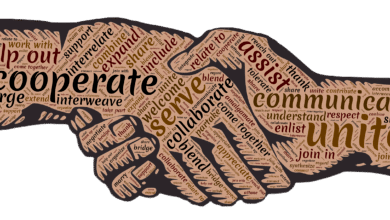Give Respect Take Respect: The Simple Rule That Can Change Your Life

Introduction
Respect is one of the most important things in human relationships. It is not something you demand it is something you earn and give. The saying “give respect take respect” is simple but powerful. When you treat others with respect, you naturally receive respect in return. This principle works in families, workplaces, schools, and even among strangers. It is a universal truth that crosses cultures, languages, and borders.
Giving respect starts with understanding. When you listen carefully, appreciate someone’s efforts, and treat people politely, you are showing respect. In return, people are more likely to value and respect you. It is a cycle of kindness and acknowledgment that benefits everyone. In this article, we will explore why respecting others is important, how it impacts your life, and practical ways to practice this golden rule every day.
Why Respect Matters in Life
Respect is more than good manners. It builds trust, strengthens relationships, and promotes peace. When you respect someone, you acknowledge their worth. People notice when you show respect, and this encourages them to behave similarly. Respect can prevent conflicts and misunderstandings.
In schools, children learn faster when teachers respect them. In workplaces, teams perform better when managers respect employees. Even in families, respect keeps the bond strong and prevents arguments. Without respect, relationships become fragile, and misunderstandings grow. Therefore, the principle “give respect take respect” is not just advice it is a foundation for healthy living.
Respect Begins With Self-Respect
You cannot truly respect others if you don’t respect yourself. Self-respect is about knowing your value, setting boundaries, and making healthy choices. When you have self-respect, you expect respect from others too.
People often confuse respect with fear or submission. True respect is earned through kindness, honesty, and integrity. When you demonstrate these qualities, others naturally respond with respect. Therefore, self-respect is the first step in the “give respect take respect” cycle. It sets the tone for all your interactions and relationships.
How Giving Respect Builds Trust
Trust is the foundation of any strong relationship. When you give respect, you are showing that you care about someone’s feelings and opinions. This action signals that you are reliable and trustworthy.
For example, in a workplace, if a manager listens to employees without interrupting or judging, employees feel valued. They trust the manager and work harder. Similarly, in friendships, showing respect through honesty and support deepens trust. Giving respect is not just polite it is strategic for building lasting connections.
The Role of Respect in Communication
Respect plays a major role in effective communication. When you respect someone, you listen without judgment, speak politely, and acknowledge their ideas. This leads to open, honest, and meaningful conversations.
Conversely, disrespect creates misunderstandings and tension. People may feel unheard, ignored, or devalued. By following “give respect take respect”, you ensure that communication flows smoothly, conflicts are minimized, and everyone feels appreciated. Respectful communication also encourages empathy and understanding, making relationships stronger and more harmonious.
Respect in Family Relationships
Family is where respect often starts. Parents, siblings, and children all benefit when respect is present. Parents respect their children by listening and valuing their opinions. Children respect their parents by following guidance and expressing gratitude.
Even among siblings, respect prevents unnecessary fights and jealousy. Teaching respect at home creates a loving environment where everyone feels safe and valued. Families that practice “give respect take respect” tend to have stronger bonds, better conflict resolution, and a happier home life.
Respect at the Workplace
A workplace thrives on mutual respect. Employees perform better when treated fairly and acknowledged for their efforts. Managers who respect team members create loyal and motivated staff.
Respect in the workplace includes listening to opinions, appreciating hard work, and maintaining professionalism. Disrespect, such as favoritism or criticism, lowers morale and productivity. Following the principle “give respect take respect” creates a healthy work culture where everyone feels valued and motivated to succeed.
Respect in Friendships
Friendships flourish when respect is present. Respectful friends listen, support, and honor boundaries. They celebrate each other’s successes without envy and provide comfort during failures.
Friendships without respect often face jealousy, conflicts, and mistrust. By practicing “give respect take respect”, friendships become deeper and more fulfilling. Respect also helps in handling disagreements without damaging the bond. True friends value each other and treat each other with care and kindness.
Respect Across Cultures
Respect is universal, but its forms may vary across cultures. Some cultures emphasize politeness, while others value honor and hierarchy. Understanding these differences shows cultural awareness and earns respect from others.
Travelers and professionals benefit greatly by learning local customs of respect. A small gesture, like greeting properly or using polite language, can build bridges across cultures. The principle “give respect take respect” applies everywhere, but sensitivity and awareness increase its impact.
Respect in Digital Spaces
The online world also demands respect. Social media, emails, and messaging platforms can often lead to rude or careless behavior. Showing respect online includes avoiding offensive language, giving credit, and responding thoughtfully.
Cyberbullying, trolling, and disrespectful comments harm both individuals and communities. By practicing “give respect take respect”, you create positive digital spaces where people feel safe and valued. Respect in digital communication also reflects your character and credibility.
Teaching Respect to Children
Children learn respect through observation and guidance. Parents and teachers must model respectful behavior consistently. Praise polite actions, explain consequences of disrespect, and teach empathy.
Games, stories, and role-playing can help children understand the value of respect. Teaching children “give respect take respect” equips them with social skills, emotional intelligence, and the ability to form healthy relationships. Respect learned early becomes a lifelong habit.
Personal Benefits of Respect
Respecting others benefits you personally as well. It creates a positive reputation, reduces conflicts, and builds supportive relationships. People naturally gravitate toward those who treat them well.
Respect also enhances emotional well-being. Being kind and considerate reduces stress, fosters empathy, and boosts happiness. Following “give respect take respect” is not just about social etiquette—it improves your quality of life and creates a peaceful environment.
Common Mistakes in Respecting Others
Sometimes, people misunderstand respect. Here are common mistakes:
- Confusing respect with agreement – You can respect opinions without agreeing.
- Respecting only certain people – True respect is universal, not selective.
- Ignoring boundaries – Respect includes acknowledging personal space and choices.
- Expecting respect without giving it – Respect is reciprocal.
Avoiding these mistakes ensures the principle “give respect take respect” works effectively in all areas of life.
FAQs About Give Respect Take Respect
1. What does “give respect take respect” mean?
It means treating others with kindness, politeness, and consideration, which encourages them to do the same for you.
2. Can you receive respect without giving it?
Rarely. Respect is usually reciprocal. People are more likely to respect those who respect them.
3. How can I show respect at work?
Listen actively, value opinions, avoid criticism, and acknowledge contributions.
4. Why is respect important in families?
Respect strengthens bonds, prevents arguments, and creates a loving environment.
5. How do I teach children respect?
Model respectful behavior, praise kindness, explain consequences of disrespect, and encourage empathy.
6. Can respect improve mental health?
Yes. Respect fosters trust, reduces stress, and promotes positive relationships, which support emotional well-being.
Conclusion: Make Respect a Habit
The principle “give respect take respect” is simple but transformative. It creates harmony, strengthens relationships, and improves your personal and professional life. Respect begins with small gestures listening, thanking, acknowledging, and understanding others.
When you practice respect consistently, it becomes a natural part of your behavior. People notice and respond positively, creating a cycle of trust and goodwill. Start today by showing respect in small ways, and watch your world change for the better. Respect is not just a rule; it is a way of life.



